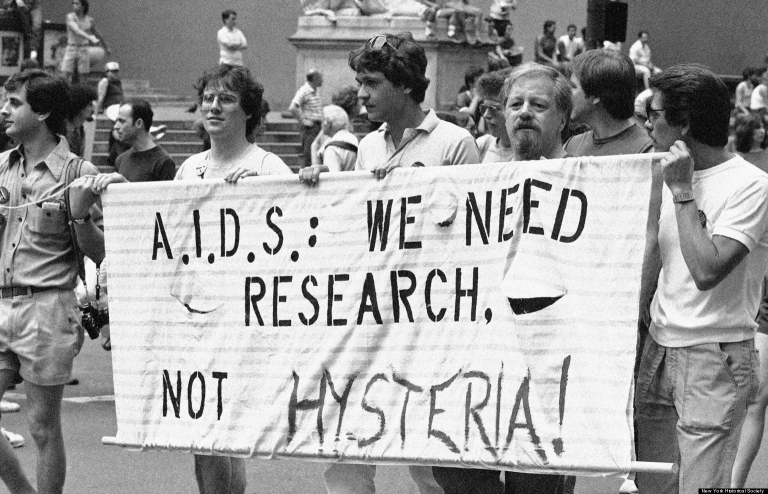OPINION Columnist Reynir Þór Eggertsson writes about a controversial claim in an Icelandic newspaper that the AIDS crisis of the 80’s may have been exaggerated.
After a wonderful Pride Week of queer craziness in Iceland last week, our community got a rude awakening with the morning coffee on Monday as the newspaper Morgunblaðið published a commentary under the pseudonym Víkverji. There they wonder whether the AIDS crisis of the 80s „may not have been as serious as then perceived“, since the disease „is rarely mentioned today and the danger seems to have passed“. Víkverji then goes on to surmise that the threat of global warming might be similarly exaggerated.
I don‘t know in which world this Víkverji lives, who claims to have been around „confirmation age“ (14) when the AIDS epidemic started. For a journalist, they don‘t seem to follow news very much, neither domestically nor internationally. 35 million people around the world have died and the disease remains a real problem in many parts of the world, and only a few weeks ago it was on the news that people in Iceland could get PrEP for free through the state health plan. But however socially isolated, the ever-so economically interested Víkverji must realize that HIV and AIDS remain a strain on the economy of many of the world‘s poorest countries.
“… they wonder whether the AIDS crisis of the 80s „may not have been as serious as then preceived“, since the disease „is rarely mentioned today and the danger seems to have passed“.”
I‘m a few years younger than Víkverji as I was 11 when I first heard of this disease that was killing gay men in America. Realizing that I also was homosexual, I remember the fear I felt that I might get it out of the blue. Little by little the world learned more about this illness, how one could be infected and what to do to prevent it. When I came out of the closet in 1990, condoms were freely available everywhere on the gay scene and so it remains in many places, although medical developments have made them less desirable for many people.
The American government under President Reagan didn’t seem particularly interested in putting money into researching an illness that seemed only to affect gay men, and it took celebrities such as the late Dame Elizabeth Taylor to raise awareness – and money – to support research and care for those suffering. Through the hard work of researchers around the world and the courage of those able to undergo physically and mentally painful medical trials, it is now possible to survive and have a good life after being infected by the HIV virus. But not every body is able to endure the strong medications involved, so the disease remains as deadly as ever. As Lana Kolbrún Eddudóttir, former chairperson of Samtökin 78, wrote on Facebook: „If you get ill and you don‘t get the medication, you die.“
As lesbian women who personally witnessed the fear and grief of the 80s AIDS crisis, Lana Kolbrún and journalist Ragnhildur Sverrisdóttir were the first to react to this unbelievable Morgunblaðið item, calling for an apology from the newspaper and the journalist responsible. Iceland‘s queer organization Samtökin 78 and HIV-Ísland followed suit, releasing a joint statement sent to the newspaper, demanding an apology. I can only echo their sentiment, Morgunblaðið must apologise for this insensitive and stupid article.
We Icelanders are lucky that we can afford the best treatment for those living with HIV/AIDS and the best preventions against being infected the virus. Still, this doesn‘t mean that no one will die of AIDS in Iceland again. We never know whether the virus changes or how medication or PrEP affect our bodies.
The big lesson for the Icelandic queer community is perhaps to remember to honor those who have died from this terrible disease. This we do best by remembering and celebrating their lives, and by demanding an open and honest discussion on how many of them were (mis)treated by their families, friends, medical professionals and the society at large, in order to heal this, paraphrasing Lana Kolbrún‘s words: „still-open wound in the contemporary history of Iceland“.
Note: The opinions and viewpoints expressed by columnists do not necessarily reflect the opinions and viewpoints of the editorial staff of www.gayiceland.is.


